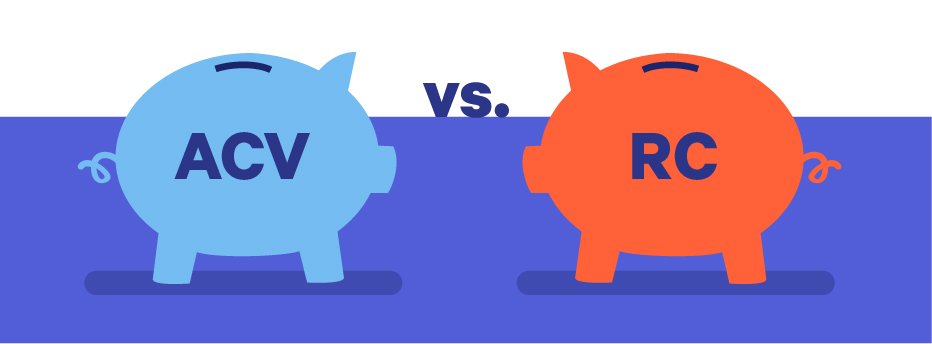Insuring Your Commercial Property: Actual Cash Value or Replacement Cost Coverage?
What's the difference between actual cash value and replacement costs insurance and which do you need to keep your commercial property safe?
Protect your business today!
Get a QuoteCommercial property insurance is a key coverage that no business can do without, but have you heard of replacement costs insurance? Even people who are running a small business from their own homes and rely on homeowner’s insurance to cover potential losses should add business contents insurance at least to their insurance program in order to provide more complete coverage for potential business losses.
Naturally, the type of business you run and the location of your business are generally the two most important characteristics that will determine how expensive your commercial property insurance will be. For example, if you are running a restaurant in a region of California in which earthquakes and wildfires are a common occurrence (in which case you probably need commercial fire insurance), your premiums will obviously be higher than if you are buying insurance for a tech startup in Nebraska.
While the processes of buying personal homeowner’s insurance and commercial property insurance can be quite different – simply because the considerations that go into creating your coverage are often very different – one thing is the same: you need to make a decision between “actual cash value” and “replacement costs insurance” when defining the type of coverage that works best for the risk profile of your business or home.
Let’s take a look at what these two property insurance coverage options entail, how they differ from one another, and why knowing the difference between the two is very important.

Understanding Property Valuation
Before beginning the process of finding the best coverage for your commercial property, two questions need to be asked: what counts as business property and how much is it all worth? The two most typical categories of commercial property are “real property” and “business personal property.”
Real property is basically anything that is permanent; for example, the land on which your business is located, the buildings your business inhabits, machinery or equipment that is permanent, outdoor fixtures, and so on.
Business personal property includes things that you can easily move in and out of your business space, such as computers, office equipment, and furniture, for example.
Once you understand what needs to be insured by your commercial property insurance, the next step is to find out how much everything is worth.
Determining the Value of Your Commercial Property
When it comes to determining the value of your business property, nothing is more important than keeping very good records. Make sure that you are holding on to every receipt related to business property expenses so that you know and can demonstrate at all times how much you have paid for everything. That includes bigger expenses like your office lease, but also smaller ones such as equipment, furniture, and anything else that your business needs to function.
For example, if you’re a retail store or a restaurant, don’t forget to always have a good estimation of the value of your inventory and stock items as well. If you’re a high-end, boutique hotel and have antique furniture and expensive pieces of art in your facilities, make sure that you have had these hard-to-replace items appraised. It’s incredibly important that you carefully and thoroughly account for all business property that is vital enough to warrant protection via insurance.

Actual Cash Value vs. Replacement Costs Insurance
Actual Cash Value (ACV) and Replacement Costs Insurance (RC) are the two most common methods an insurer uses to calculate how much they will pay for eventual business property losses.
ACV means that the insurer is looking at the current market value of the property that needs to be replaced when making the payment. It basically represents the amount of money you could get for that property at the time if you were to try and sell it, which is obviously less than you paid for it, so depreciation is clearly a very important part of the ACV formula.
To give an example, if someone broke into your office and stole a computer that you purchased three years ago, if the property was insured as ACV, then your insurer would pay out an amount that represents a fair market value of that three-year-old computer, taking into consideration the depreciation of the property’s value over time.
Replacement costs insurance payments will compensate your business for the actual cost of replacing your property. To continue with the above-mentioned example in which a computer was stolen from your office, under an RC policy, your insurer would have to give you enough money to purchase a brand new computer of equal quality, not taking into consideration the fact that the computer was three years old and, therefore, no longer worth as much as it was when purchased.

What Are the Key Differences?
As one would expect, the main differences between actual cash value and replacement costs insurance are the scope and cost of the coverage. Premiums will be considerably higher for replacement costs insurance policies since you are buying coverage for the original value of your property with no deductions for depreciation.
With ACV, insurers use the logic that if your property is several years old, it’s no longer worth as much as it was when it was brand new. Additionally, insurers will rationalize that your business has already gained significant value through owning or having access to this business property over a period of time.
Insurers will most commonly determine the ACV of your property using a fixed depreciation schedule, which means that the insured value of the property decreases by a fixed percentage year over year. The best thing about ACV is that your premiums will be significantly lower for all property that is insured in this way.
If you determine that replacement cost insurance is the way to go, your premiums will definitely increase, but the upside is that you will have full coverage. Replacement costs insursnce is a smart option for people who own businesses located in high-risk areas. For example, if a coastal business is flooded after a hurricane and completely destroyed, actual cash value coverage most likely won’t allow the business to replace all of its lost property.
However, replacement costs insurance guarantees that your insurer will cover your damages more completely. So even if the business would be saving money on lower premiums with ACV coverage over time, paying for RC coverage would certainly be worth it in the event of a major loss after which you would have to build the business back up from scratch. In the end, it’s up to businesses and their brokers to take everything into consideration and decide which route works best for the company’s risk profile and coverage needs.
The common practice when buying commercial business insurance is to insure the real property (land, buildings, etc.) with replacement costs insurance and insure business personal property (furniture, equipment, inventory, etc.) with actual cash value coverage in order to get the best of both worlds – full coverage for your most important and integral business assets and better premiums for insuring your less critical business property.
You can get your commercial property insurance quote with Embroker in under 10 minutes, or if you’d like to learn more about buying the right coverage for your business, reach out to one of our expert brokers at any time.
